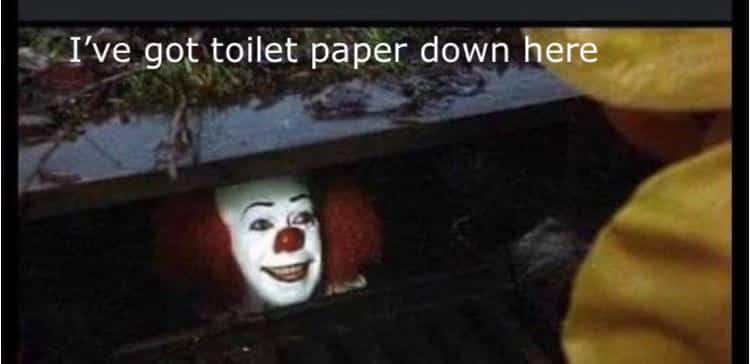But why toilet paper?
17/3/20 23:04
Hoarding toilet paper seems awkward, even illogical. You can't eat it, drink it, you can't run your car on it... Besides, it takes a lot of space. Still, the whole world has gone mad for it. Toilet paper is all the rage!
If you make an experiment and ask people on the street why they are buying so much toilet paper, I'm sure many would say it's because of hygiene needs of course. Except, we're not talking of a stomach virus. If you press them a bit further, some would say they're buying it "because everyone else is". They are concerned that they would run out of toilet paper because others are buying it. Seems kind of cyclical, no?
Sure, but why toilet paper and not something else? Food doesn't seem likely to run out (for now) - but toilet paper? It is everywhere on the news, in the social media, all the new memes are about it...
Well, if you ask the psychology experts, you would likely hear that this is typical of mass panic of the general type (as opposed to one specifically caused by an impending disaster). In the latter case, there is already ample information about the specific threat - what it is like, when it will come, how big it will be. You know it's coming, and you know what you must do and how you should prepare and within what a time frame. You can be a lot more rational in your behaviour, including your purchases.
But the matters of public health are something entirely different. We have only a vague idea of the time it would take to deal with these problems, and we can only make guesses about their intensity. We are constantly flooded with messages, we read the news, and we subconsciously enter a panic mode, so we start behaving irrationally, buying more than we would possibly ever need. Because this is our last remaining tool for maintaining a sense of control.
Toilet paper in particular, being so durable as an item (much more compared to any food), and always being so prominent around the shelves in the supermarkets, is somehow suddenly very attractive in times of crisis.
If an internationally recognised symbol of mass panic ever emerges, it must certainly be a roll of toilet paper. Or maybe a warning sign with a toilet paper in the middle. Or something like that.
Our brains are programmed to always be vigilant for new threats, and always resort to safety, its default mode. This regime tends to be even more pronounced when we find ourselves in a situation that's out of our control.
While the Coronavirus is no small issue, people do overestimate the risk of reaching a fatal end from it. We have already heard the argument many times at this point: lots of people die in car incidents, or home incidents, but of course they never panic when they leave home in the morning that they could end up being smashed by a truck, right? The thing is, it's hard to convince our brains with facts, so stats seldom works as a psychological tool. It is just useless.
These panic attacks of mass proportions tend to wane in a month or so, when people have had enough time to think more rationally. But at the initial moment when they stand before the empty shelves, they are scared that the most coveted items will run out, so they start to hoard more and more - much more than they'd ever need.
At some point this reaches dangerous proportions, because some goods like soap, medicines and disinfection chemicals become inaccessible for those who really need them.
Toilet paper, being an item of such huge volume and size, is special in that an empty shelf of toilet paper creates a much bigger obsession with possessing that item compared to other smaller goods.
People may really be trying to convince themselves that they're doing it for hygiene purposes - because, you know, virus! Germs, bugs, and stuff! We need to be clean! Even though this item has no direct relation to Covid-19 (unless you're willing to get really inventive and create some sort of make-do face mask or something). And still, the very idea that they could run out of toilet paper makes people feel extremely threatened. Even though you could use a whole lot of other things as a substitute (even pure water).
As absurd as all this may seem, admit it, we've all allowed the thought sneak into our head at some point or other: "What if I run out of toilet paper too?" It's really interesting to observe how people are hoarding stuff that would hardly help them get from point A to point B in a life or death situation. After all, isn't food what they'd really need in a situation like this? Food and medicine.
This shows that it's not the virus itself, or the health threat, that people are so concerned about, as they're focused on preserving the conveniences that civilised life grants them - like using toilet paper in a modern toilet.
Although it's understandable that people may feel concerned for their hygiene at times of self-isolation, the quantities of hygiene-related items that they buy in crisis situations like this, are outright irrational. We do not react to the virus; we rather react to the fear of what might happen if everyone else succumbs to panic - and this in turn creates the panic buying that feeds the whole cycle. And this instant reversion to our base instincts is a long-term problem for human society, because it reveals just how vulnerable it is when put under pressure.